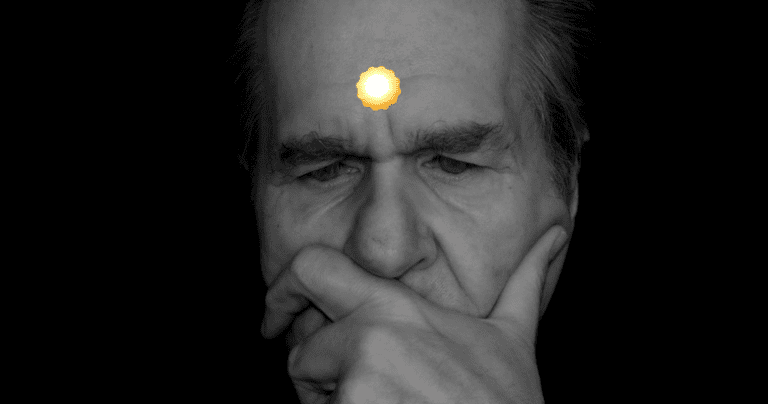
The term trans-rational describes a worldview in which rationality is included and transcended, not repressed or dismissed. This is an important distinction. Trans-rational means rationality plus, not minus rationality. The paradox is that both trans-rational and pre-rational worldviews are irrational and therefore often equated.
The Pre/Trans Fallacy
Ken Wilber addresses this confusion in what he calls the pre/trans fallacy. He maintains that the fallacy is found in the fact that people usually take an either/or stance when it comes to what is perceived as irrational.
They do this by either reducing genuinely transcendent spiritual experiences to pre-rational hallucinations (something Freud did quite frequently) or by elevating pre-rational magical and mythical visions to trans-rational mysticism (an inclination which Jung indulged in).
Discerning between the two is important.
Why Pre-Rational is Irrational
The pre-rational approach to spirituality is irrational because it is based on pre-rational worldviews, including the magical worldview, the belief that individual thoughts and actions directly influence the outside world—as in, “If I dance, it will rain”—and the mythical worldview, belief in unverified dogma, a worldview that usually includes a belief in an external power that can be asked to change outcomes— as in, if “I pray to this deity, it will intervene in my life.”
“I” At the Center of Everything
The magical worldview leads people to believe that they can completely control their destiny and manipulate the world around them. Every external event happens because of their internal beliefs and personal actions. The “I” is at the center of the universe, and everything that happens or does not happen is a result of individual thoughts and actions.
A rational interpretation of magic would be that our thoughts influence our actions, while a trans-rational interpretation would entertain the idea that sometimes our thoughts generate a type of synchronicity that is difficult to explain.
An External Force That Needs Appeasement
The mythical worldview leads people to believe that an external force controls their destiny. This belief structure suggests that one must fall in line with the will of a chosen external force if life is to turn out okay. In the same way that children make an effort to please their parents, the believer makes every effort to follow the perceived wishes of the external power. The mythical worldview thrives on stories and is still prevalent among the world’s religions.
A rational interpretation of the mythic worldview—propagated by Joseph Campbell, for example—is that mythical stories can teach us a lot, but are not to be taken literally. A trans-rational interpretation would focus on the underlying spiritual—i.e. metaphysical—implications of said stories.
Scientific Principles and Rational Discourse
The rational worldview—the Western modus operandi since the 1800’s—leads people to believe that they can manipulate their lives and surroundings through a deeper understanding of scientific principles and rational discourse.
The rational worldview has created undeniable upsides, such as advances in technology and medicine. Indeed, few things have been shown to deter sickness and lift people out of poverty faster than the development of rational capacities through education.
However, in relation to spirituality, we can’t think our way to inner peace. Furthermore, rationality can easily unveil the futility of life and lead to depression, as the stereotype of the extremely smart, but world-weary educated man (often portrayed as a detective, philosopher, or doctor) suggests.
The rational worldview has its boundaries. As Huston Smith was fond of pointing out, the rational or scientific point of view cannot see above itself. The tools it provides us with are magnificent and powerful but also limited. They cannot see what they cannot see.
A Transcendent Reality
The trans-rational worldview, then, is reason—science and rationality—plus something more. A trans-rational approach to spirituality appears irrational because it points to a reality that cannot be corroborated by reason alone. A trans-rational spiritual aspirant, therefore, does not dismiss rationality but is nonetheless willing to go beyond it.
The simplest way to discern between the pre-rational and trans-rational approaches is to remember that the trans-rational approach always includes a rational component and can never go completely against reason or science, and yet, it is also open to what the rational mind cannot fully explain.
Gudjon Bergmann
Author & Interfaith Minister
This column was curated from my book, Trans-Rational Spirituality
Picture: Pexels.com CC0 License
p.s. If this is your first time reading about these differences, then my column will simply wet your appetite. You will need to delve further into the some of these ideas on your own. All I have done is explain the trans-rational approach in a nutshell.












